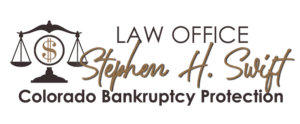
If you’ve watched any late night television lately, chances are you’ve seen former U.S. Presidential candidate Fred Thompson out there pitching reverse mortgages. Many seniors are enticed by these very noteworthy spokespeople as they explain the process of cashing out their home equity. While it’s not necessarily a bad decision to do this, it is important to be aware of fraudulent companies looking to capitalize on cash-poor retirees.
On the FTC’s web site, a variety of consumer data is available for the individual who wants to learn more about unusual consumer credit offers. The site explains that if you are 62 or older, a reverse mortgage can help you finance a home improvement, pay off your current mortgage, supplement your retirement income, or pay for healthcare expenses. It works by converting part of the equity of your home into cash without the need to sell the home or make payments on a second mortgage. Unlike a traditional equity loan, the reverse mortgage is repaid only when you die, sell your home or the home is no longer your primary residence. Many companies don’t have income restrictions for these loans and they are generally tax-free.
With a traditional mortgage, you make monthly payments to the lender, but with a “reverse” mortgage, you receive money from the lender, and generally don’t have to pay it back for as long as you live in your home.
Types of Reverse Mortgages
There are three types of reverse mortgages:
- Single-purpose reverse mortgages: Offered by some state and local government agencies and nonprofit organizations
- Proprietary reverse mortgages: Private loans that are backed by the companies that develop them
- Federally-insured reverse mortgages: Known as Home Equity Conversion Mortgages (HECMs) and backed by the U. S. Department of Housing and Urban Development (HUD)
Single-purpose reverse mortgages are the least expensive option. Most homeowners with low or moderate income can qualify for these loans.
HECMs and proprietary reverse mortgages may be more expensive than traditional home loans, and the upfront costs can be high. This is an important consideration, especially if you plan to stay in your home for just a short time or borrow a small amount. HECM loans are widely available, have no income or medical requirements, and can be used for any purpose.
Before applying for an HECM loan, counseling is required by the lender. Their counselor is required to explain the loan’s costs and financial implications, and possible alternatives to a HECM, like government and nonprofit programs or a single-purpose or proprietary reverse mortgage. He or she also should be able to help you compare costs for various types of reverse mortgages and explain the different payment options, fees, and other costs affect the total cost of the loan over time.
The amount you can borrow with a HECM or proprietary reverse mortgage depends on several factors, including your age, the type of reverse mortgage you select, the appraised value of your home, and current interest rates. In general, the older you are, the more equity you have in your home, and the less you owe on it, the more money you can get.
The HECM lets you choose among several payment options. You can select:
- Term option – fixed monthly cash advances for a specific time.
- Tenure option – fixed monthly cash advances for as long as you live in your home.
- Line of credit – this option lets you draw down the loan proceeds at any time in amounts you choose until you have used up the line of credit.
Other important facts from the FTC web site about reverse mortgages:
Lenders generally charge an origination fee, a mortgage insurance premium (for federally-insured HECMs), and other closing costs for a reverse mortgage. Lenders also may charge servicing fees during the term of the mortgage. The lender sometimes sets these fees and costs, although origination fees for HECM reverse mortgages currently are dictated by law. Your upfront costs can be lowered if you borrow a smaller amount through a reverse mortgage product called a “HECM Saver.”
The amount you owe on a reverse mortgage grows over time. Interest is charged on the outstanding balance and added to the amount you owe each month. That means your total debt increases as the loan funds are advanced to you and interest on the loan accrues.
Although some reverse mortgages have fixed rates, most have variable rates that are tied to a financial index: they are likely to change with market conditions.
Reverse mortgages can use up all or some of the equity in your home, and leave fewer assets for you and your heirs. Most reverse mortgages have a “nonrecourse” clause, which prevents you or your estate from owing more than the value of your home when the loan becomes due and the home is sold. However, if you or your heirs want to retain ownership of the home, you usually must repay the loan in full – even if the loan balance is greater than the value of the home.
Because you retain title to your home, you are responsible for property taxes, insurance, utilities, fuel, maintenance, and other expenses. If you don’t pay property taxes, carry homeowner’s insurance, or maintain the condition of your home, your loan may become due and payable.
Interest on reverse mortgages is not deductible on income tax returns until the loan is paid off in part or whole.





